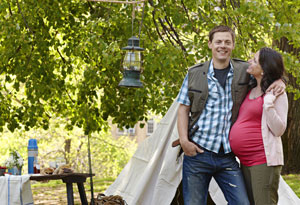The Case for Responsible Meat-Eating

Photo: William Abranowicz
There's nothing barbaric about venturing into the wild to bag your own dinner, says Steven Rinella. In fact, it may be the most respectful thing a carnivore can do.
I was collecting wild mushrooms with my parents when I was 3 years old, hunting squirrels when I was 7, and running traplines for raccoons when I was 10. But I didn't fully understand my relationship to the wild until I was 13, when I killed my first deer, beneath a canopy of hemlocks in the bottom of a deep ravine in Michigan. My dad had shown me how to dress a deer by tracing the incision lines on the underside of our pet dog, Duchess. I followed his directions, and then pawed through the deer's innards until I found the heart. Later that morning, my mom sliced and fried the organ with a handful of chopped onions left over from our summer garden. Once I got past my reluctance to eat the meat, I discovered it was firm and rich, with strong hints of minerals and wilderness. I was transformed. I saw the connections not only between who I am and what I eat but between who I am and how I acquire what I eat. That deer's heart was the truest meal I ever had. From that moment on, I would consider myself a hunter-gatherer.
To some, that term might evoke a brutish image of me dragging my wife by the hair into a cave. In truth, it's more like this: Me spending enough weeks hunting and fishing, in Alaska, Montana, and upstate New York, to stockpile enough game to get us through the year. The rest of the time I'm home in Brooklyn, writing—and making dinner so it's ready when my wife returns from her office in Manhattan.
I realize that this image of modern domesticity doesn't sanitize the bloody work of killing and butchering animals. Asked to justify the food choices I make, I offer the usual explanations: Wild foods are environmentally low impact; meat from wild game is typically lower in fat than meat from grain-fattened domestic animals; wild game populations in the U.S. are managed through stringent laws that ensure sustainability; and American hunters spend billions of dollars annually to preserve wildlife habitat.
I seldom admit the most compelling reason for hunting: It's satisfying. I'm afraid people will think I take pleasure in killing animals, which is actually the most emotionally complex element of maintaining what I believe to be an ethically cohesive existence. Because I choose to eat meat, I assume responsibility for acquiring it, rather than entrusting it to proxy executioners, processors, packagers, and distributors.
We humans rely on countless unseen mechanisms completely out of our control. Every week some of them fail us. Flights are canceled, Internet service goes down, the economy tanks. It's good to know that, come what may, I have the skills to sustain my family from what I can find in the wild.
Preparing food I hunted and gathered with my own hands turns a ritual that might otherwise seem rushed and uninspired into a celebration of the bounties of life. For the hour that my wife and I eat, life becomes clearer. And it tastes as perfect as that deer's heart cooked by my mother a quarter century ago.
What you need to know about buying sustainable meat (if you're not going to hunt your own, that is)



